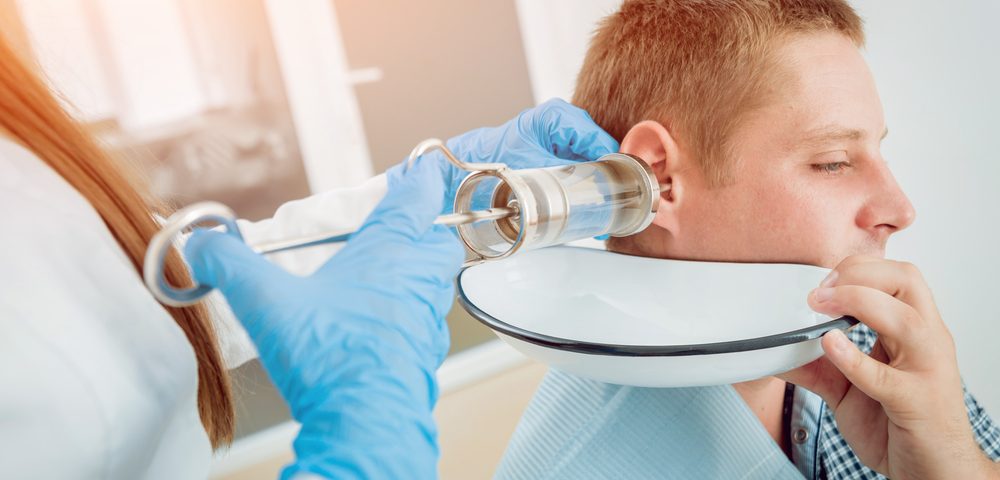
Ways to Prevent Swimmer’s Ear
August 14, 2018
How to Remove Water from Your Ears, Pt. 1
November 5, 2018How to “Clean” Your Ears Safely

Medical ear washing with water in big syringe. Ear irrigation and earwax removal
If your ears feel clogged, it may be time for a “cleaning.” While earwax is a self-cleaning agent that our body produces, sometimes it doesn’t always work itself out of our ears after collecting dirt, bacteria, and debris. While we never need to truly clean our ears, we do need to clear it of wax that has built up over time and, as a result, has started to affect our hearing.
This is called impaction and the symptoms include – earaches, ringing in the ear, impaired hearing, odor from the ear, dizziness, and coughing. If you have hearing aids or use earplugs, you’re more likely to develop excess wax. Those who are older in age and those with developmental disabilities are also at higher risk of impaction. While the best way to remove wax is by visiting your doctor, here are some tips to help you should you decide to do this at home.
- Use a damp cloth. Wipe the area with a warm, damp cloth. DO NOT use cotton swabs, as these only push wax deeper down into the canal. Swabs are safe only for the outside of the ear.
- Try an earwax softener. You can find most of these at your local pharmacy – mineral oil, baby oil, glycerin, peroxide, hydrogen peroxide, and saline. Follow instructions and place only the specified amount into your ears. Wait and then drain or rinse your ear.
- Use a syringe. This process is called irrigation. In this form of treatment, you will gently rinse the ear canal using water or a saline solution. This is most effective 15-30 minutes after using a wax softener. Make sure you warm the solution to your body’s temperature in order to avoid dizziness.
If you experience pain in the middle ear, fluid drainage, or impaired hearing, you may have an ear infection. If this is the case, call us immediately so we can schedule an appointment and help you get back on track to hearing well and feeling better.


